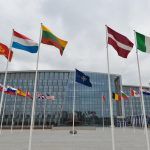Reports that Ukraine’s, and Europe’s, largest nuclear power plant is under the control of Russian forces is a cause for grave concern, the Director-General of the International Atomic Energy Agency (IAEA), Rafael Mariano Grossi, said on Sunday.
In a statement released by the IAEA, Mr. Grossi said he had been informed by Ukrainian authorities that, although regular staff continue to operate the Zaporizhzhya Nuclear Power Plant, any action of plant management – including measures related to the technical operation of the six reactor units – requires prior approval by the Russian commander of the Russian forces that took control of the site last week.
Mr. Grossi said that this development contravenes one of the seven pillars of nuclear safety and security that he outlined at a meeting of the IAEA’s Board of Governors on 2 March: that “operating staff must be able to fulfil their safety and security duties and have the capacity to make decisions free of undue pressure”.
Communication severely restricted
Ukraine’s nuclear regulator has informed the IAEA that it is having major problems communicating with staff operating Zaporizhzhya, due to Russian forces at the site switching off some mobile networks and blocking the internet. Some mobile phone communication is understood to still be possible, albeit with poor quality, but fixed phone lines, as well as e-mails and fax, are reportedly no longer functioning.
The IAEA noted that this situation contravenes another of its seven indispensable pillars of nuclear safety, that there must be “reliable communications with the regulator and others”.
“I’m extremely concerned about these developments that were reported to me today”. Said Mr. Grossi. “Just a few days after I presented the seven main elements of nuclear safety and security to the IAEA Board, several of them are already being compromised. In order to be able to operate the plant safely and securely, management and staff must be allowed to carry out their vital duties in stable conditions without undue external interference or pressure”.
“The deteriorating situation regarding vital communications between the regulator and the Zaporizhzhya NPP is also a source of deep concern, especially during an armed conflict that may jeopardize the country’s nuclear facilities at any time”, continued the Director-General. “Reliable communications between the regulator and the operator are a critical part of overall nuclear safety and security”.
Radiation levels normal
Despite the communication issues, the regulator was able to provide updated information about the operational status of the Zaporizhzhya NPP to the IAEA, and to confirm that radiation levels there remained normal.
Operational teams at the plant are now rotating in three shifts but, the regulator added, the availability and supply of food is limited, which is having a negative impact on staff morale.

Chornobyl and Mariupol safety fears
Responding to reports that the technical staff and guards at the site of the Chornobyl nuclear accident site have not been rotated since 23 February, Mr. Grossi called on the Russian forces controlling the site to allow them to be relieved by other colleagues and rest, in order to carry out their jobs safely and security.
The Ukraine regulator has informed the IAEA that communication with Chornobyl is currently limited to emails.
In another worrying development, the regulator said that all communications have been lost with the enterprises and institutions in the port city of Mariupol that use category 1-3 radiation sources, and there is no information about their status. Such radioactive material, warned the IAEA, can cause serious harm to people if not secured and managed properly.
- Ukraine gave up its rights to nuclear weapons following the dissolution of the Soviet Union, and all the nuclear weaponry on its territory was removed by June 1996. However, the country retained the right to develop nuclear energy for peaceful purposes, and some 114 enterprises are believed to have nuclear materials of some kind, including four nuclear power plants (NPPs).
- The military conflict in Ukraine is the first to take place on the territory of a country with large nuclear facilities. On Thursday night, Zaporizhzhia NPP, the largest and most powerful in Europe, was shelled, raising fears of an explosion, and radiation leaks.
- Memories of the Chornobyl disaster, which occurred on April 26, 1986, have also been revived: Chornobyl was one of the most serious nuclear incidents in human history, and led to a radioactive plume covering a large part of north-eastern Europe.
- Thursday’s attack on Zaporizhzhia saw shells hitting a training complex near the nuclear reactors. No radioactive material was released, and the plant’s safety systems were not compromised.
- However, an accident or explosion at Zaporizhzhia, which is far bigger than Chornobyl, could lead to far more serious consequences than the 1986 incident. This could result from fresh attacks, or even a loss of electricity. The latter situation could prevent the reactor cooling system from working, and lead to an explosion (this was the cause of the Chornobyl disaster).
More information: United Nations – UN News
Security Council debates Russian strike on Ukraine nuclear power plant







Leave a Reply